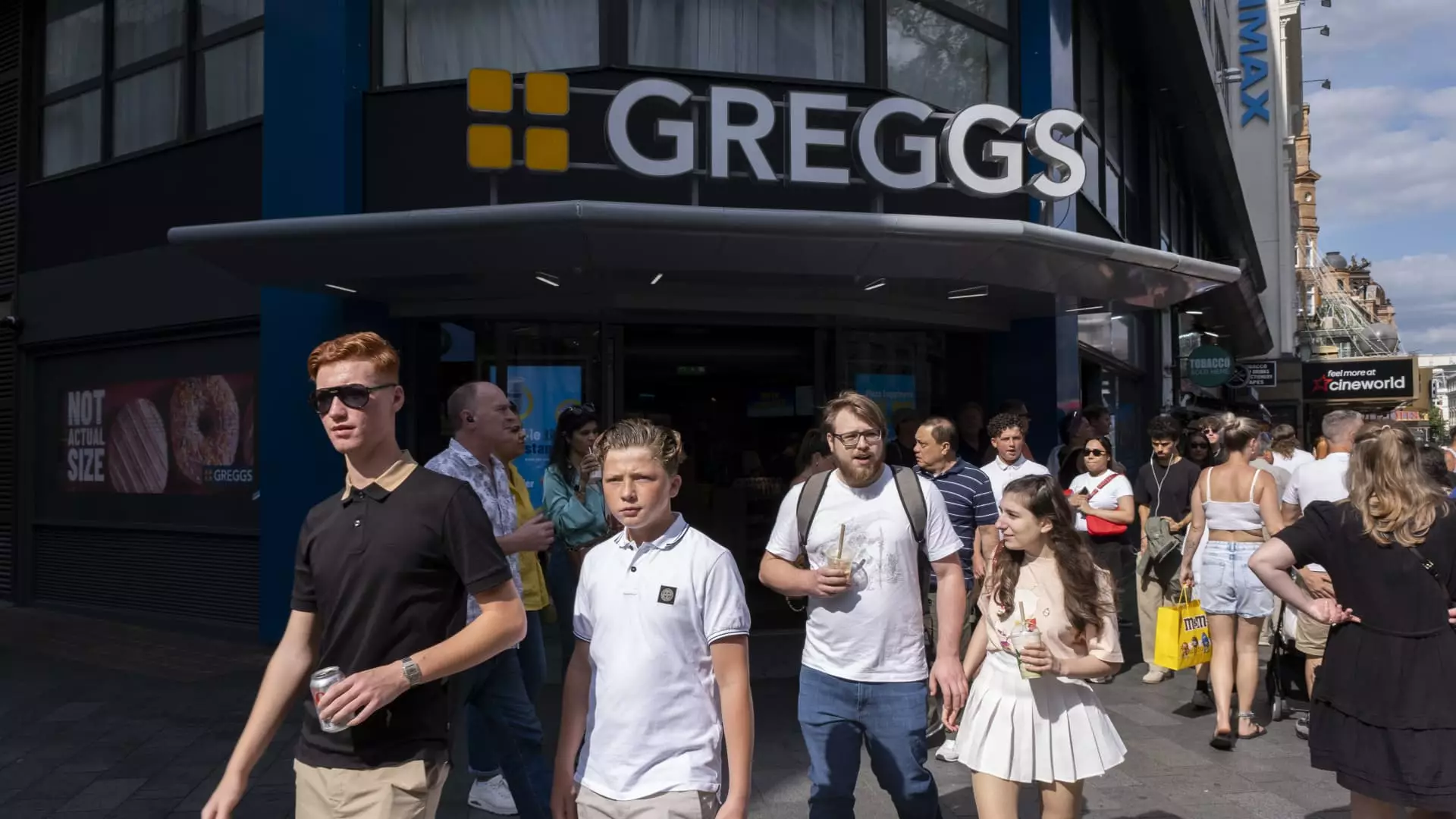Despite its reputation as Britannia’s favorite fast-food bakery, Greggs is revealing cracks beneath its seemingly resilient façade. The recent temperature surge in the UK, which led to a sharp decline in foot traffic, underscores a harsh reality: consumer behavior is more vulnerable than ever to external shocks. While the company reports positive sales figures for the first half of 2025, a deeper analysis exposes the fragility of its recent success. The fact that like-for-like sales only marginally increased speaks volumes about the limits of its growth, especially when external factors—climatic anomalies—disrupt routine shopping patterns. Greggs’ optimism about expansion seems increasingly disconnected from the immediate pressures faced by cash-strapped households.
Heatwaves: An Unkind Force on Traditional Business Models
The recent heatwave has served as a brutal reminder of how climate extremes threaten established business models. Baking is the core of Greggs’ identity, yet high temperatures render hot bakery items less appealing, suppressing footfalls and shifting customer preference towards cold beverages. This shift exposes a fundamental vulnerability: businesses rooted in comfort food and hot offerings are susceptible to weather fluctuations, and climate change is intensifying their impact. For Greggs, it’s not just about a short-term dip but about the need to adapt swiftly to a landscape where thermometers hit record highs more frequently, potentially rendering hot products less profitable for longer durations.
Economic Strain and Consumer Priorities: A Diminished Appetite for Cheap Pleasures
While Greggs champions affordability, the broader economic context complicates its narrative. Even with inflation easing, many households remain cautious, tightening their spending on discretionary treats. The social media virality of specific offerings underscores a desire for novelty, but not necessarily for everyday indulgence. For cash-conscious consumers, the allure of value is no longer enough to combat the anxiety of economic uncertainty. Greggs’ core value proposition—affordable, convenient eating—may be losing its edge amidst this environment of cautious consumption. The company’s optimistic outlook for 2025 could be optimistic at best, with many customers prioritizing essentials over pastries, especially during periods of economic unrest.
The Future Amidst Uncertainty
Looking ahead, Greggs’ expansion ambitions seem increasingly ambitious in a climate of rising volatility. While the company clings to its plan for dozens of new outlets, the cracks in the foundation are evident. The retail landscape is shifting—climate variability, economic pressure, and changing consumer habits challenge the sustainability of long-term growth strategies. Rather than a straightforward success story, Greggs’ situation highlights the importance of agility and innovation in an era where external forces increasingly dictate consumer behavior. The question isn’t merely about whether Greggs can adapt but whether the company is willing—and able—to fundamentally recalibrate its approach in the face of this complex, unpredictable environment.

